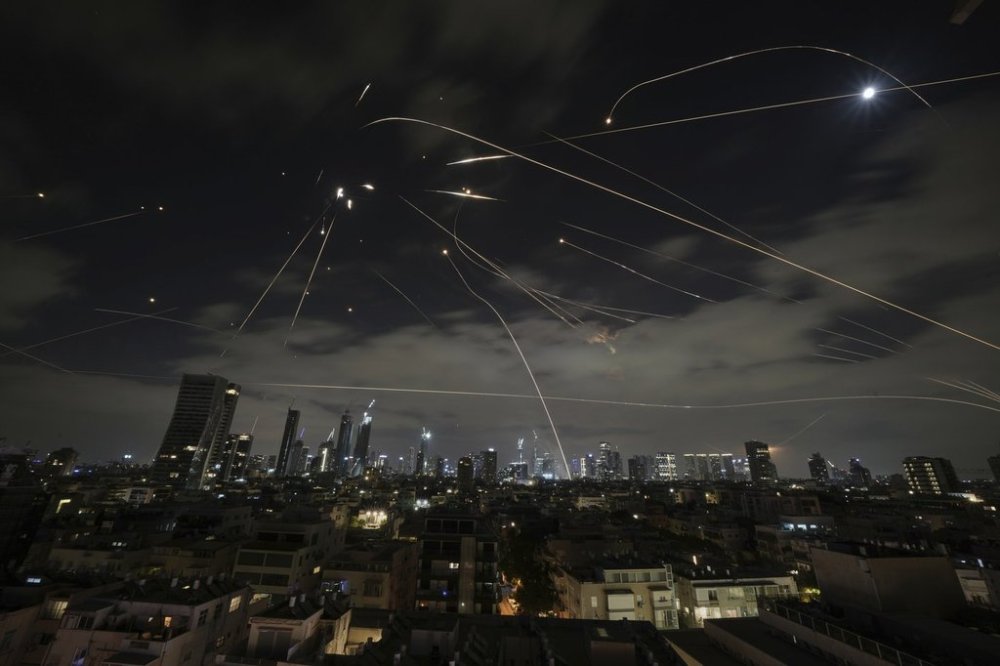Lebanese leaders indirectly urge Hezbollah to stay out of the Israel-Iran conflict
Advertisement
Read this article for free:
or
Already have an account? Log in here »
To continue reading, please subscribe:
Monthly Digital Subscription
$0 for the first 4 weeks*
- Enjoy unlimited reading on winnipegfreepress.com
- Read the E-Edition, our digital replica newspaper
- Access News Break, our award-winning app
- Play interactive puzzles
*No charge for 4 weeks then price increases to the regular rate of $19.95 plus GST every four weeks. Offer available to new and qualified returning subscribers only. Cancel any time.
Monthly Digital Subscription
$4.99/week*
- Enjoy unlimited reading on winnipegfreepress.com
- Read the E-Edition, our digital replica newspaper
- Access News Break, our award-winning app
- Play interactive puzzles
*Billed as $19.95 plus GST every four weeks. Cancel any time.
To continue reading, please subscribe:
Add Free Press access to your Brandon Sun subscription for only an additional
$1 for the first 4 weeks*
*Your next subscription payment will increase by $1.00 and you will be charged $16.99 plus GST for four weeks. After four weeks, your payment will increase to $23.99 plus GST every four weeks.
Read unlimited articles for free today:
or
Already have an account? Log in here »
Hey there, time traveller!
This article was published 16/06/2025 (207 days ago), so information in it may no longer be current.
BEIRUT (AP) — Lebanon’s president and prime minister said Monday that their country must stay out of the conflict between Israel and Iran because any engagement would be detrimental to the small nation engulfed in an economic crisis and struggling to recover from the latest Israel-Hezbollah war.
Their remarks amounted to a message to the Lebanese militant Hezbollah group — an ally of both Iran and the Palestinian militant Hamas group in Gaza — to stay out of the fray.
Hezbollah, which launched its own strikes on Israel a day after Hamas’ Oct. 7, 2023 attack, has been hard-hit and suffered significant losses on the battlefield until a U.S.-brokered ceasefire last November ended the 14 months of fighting between Hezbollah and Israel.

Earlier this year, Hamas fighters inside Lebanon fired rockets from Lebanese soil, drawing Israeli airstrikes and leading to arrests of Hamas members by Lebanese authorities.
The Hezbollah-Israel war left over 4,000 people dead in Lebanon and caused destruction worth $11 billions; Hezbollah was pushed away from areas bordering Israel in south Lebanon. In Israel, 127 people, including 80 soldiers, were killed during the war.
Lebanese President Joseph Aoun and Prime Minister Nawaf Salam spoke during a Cabinet meeting Monday that also discussed the Iran-Israel conflict and the spike in regional tensions over the past four days.
Information Minister Paul Morkos later told reporters that Aoun urged all sides in Lebanon to maintain calm and preserve the country’s stability. For his part, Salam said Lebanon should not be involved in “any form in the war,” Morkos added.
Hezbollah, funded and armed by Iran, has long been considered Tehran’s most powerful ally in the region but its latest war with Israel also saw much of Hezbollah’s political and military leadership killed in Israeli airstrikes.
Since Israel on Friday launched strikes targeting Iran’s nuclear program and top military leaders, drawing Iran’s retaliatory ballistic missiles at Israel, the back-and-forth has raised concerns that the region, already on edge over the Israel-Hamas war in Gaza, would be plunged into even greater upheaval.



